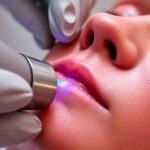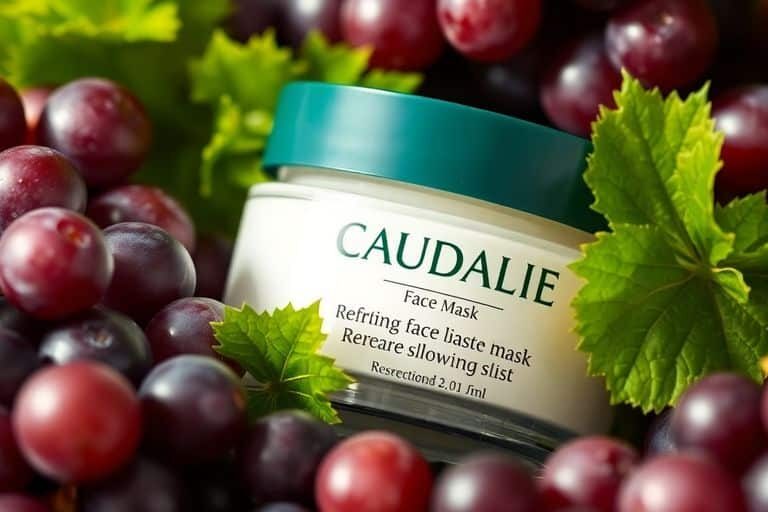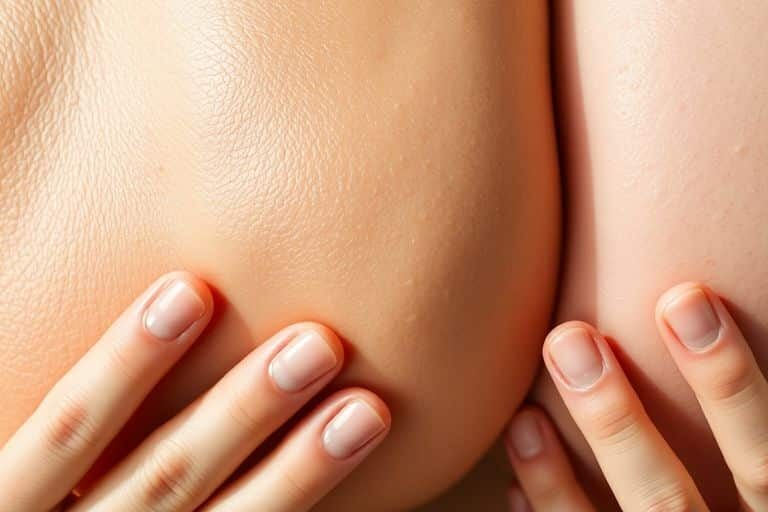Isotretinoin gel has emerged as a powerful ally in the fight against acne, particularly for those dealing with severe or stubborn cases. This topical treatment not only targets the root causes of acne but also offers long-lasting results that can significantly improve skin health. In this article, we will explore how isotretinoin gel works, its effectiveness, potential side effects, and how it can be integrated into personal skincare routines for optimal results.
Key Takeaways
- Isotretinoin gel reduces sebum production, helping to prevent clogged pores.
- Clinical studies show that isotretinoin gel is effective in treating severe acne and can lead to long-term remission.
- While it has many benefits, users should be aware of potential side effects like dryness and skin sensitivity.
- Personalised treatment plans are essential for maximising the benefits of isotretinoin gel, tailored to individual skin needs.
- Using isotretinoin gel can boost self-esteem and improve quality of life by achieving clearer skin.
Understanding Isotretinoin Gel Mechanism
How Isotretinoin Gel Works
Okay, so let’s get into how this stuff actually works. Isotretinoin gel, unlike some other acne treatments, gets right to the source of the problem. It’s a retinoid, which is basically a souped-up version of vitamin A. It encourages skin cell turnover, meaning your skin sheds old cells faster and replaces them with new ones. This helps to prevent pores from getting clogged in the first place. It’s like a spring clean for your face, constantly pushing out the bad stuff and bringing in the good.
The Role of Sebum Reduction
Sebum is the oily stuff your skin produces. Too much of it? Hello, acne! Isotretinoin gel is great because it reduces the amount of sebum your skin makes. Less oil means less for bacteria to feed on, and fewer blocked pores. It’s not about completely eliminating oil – your skin needs some – but about getting the balance right. Think of it like this:
- Reduces the size of sebaceous glands.
- Decreases sebum production.
- Helps prevent clogged pores.
Impact on Acne Bacteria
Acne isn’t just about blocked pores and oil; bacteria play a big part too. Cutibacterium acnes (C. acnes) is a type of bacteria that thrives in oily environments, like blocked pores. Isotretinoin gel doesn’t directly kill these bacteria, but by reducing sebum production and creating a less hospitable environment, it makes it harder for them to survive and multiply. It’s like evicting unwanted guests from your face. Isotretinoin, or 13-cis-retinoic acid, can really help with this.
Basically, isotretinoin gel tackles acne from multiple angles: it unclogs pores, reduces oil production, and makes it harder for acne-causing bacteria to thrive. It’s a pretty comprehensive approach, which is why it can be so effective for severe acne.
Efficacy of Isotretinoin Gel in Acne Treatment
Clinical Studies Supporting Effectiveness
So, does this stuff actually work? That’s the big question, right? Well, loads of clinical studies have looked into how well isotretinoin gel tackles acne, and the results are pretty encouraging. These studies generally show a significant reduction in acne lesions (spots, blackheads, whiteheads – the whole shebang) compared to using a placebo (basically, a dummy gel).
- Studies often measure the number of inflammatory and non-inflammatory lesions before and after treatment.
- Researchers also look at the overall improvement in acne severity using a grading scale.
- Patient satisfaction is another key factor – how happy are people with the results?
It’s worth noting that the effectiveness can vary depending on the concentration of isotretinoin in the gel and how often it’s applied. Some studies also compare it to other topical acne treatments to see which comes out on top.
Long-term Results and Remission
Okay, so it works in the short term, but what about the long haul? That’s what I wanted to know. One of the great things about isotretinoin gel is that it can lead to long-lasting results for some people. It’s not a guaranteed cure, and acne can come back, but many users experience a significant period of remission (where their skin stays clear) after finishing treatment.
- Consistency is key. Sticking to the treatment plan is crucial for seeing those long-term benefits.
- Maintenance therapy (using the gel less frequently after the initial treatment) can help keep acne at bay.
- Lifestyle factors (diet, stress, skincare routine) also play a role in maintaining clear skin.
Comparison with Other Treatments
There are tonnes of acne treatments out there, so how does isotretinoin gel stack up? Well, it depends on the type and severity of your acne. Compared to some other topical treatments (like benzoyl peroxide or salicylic acid), isotretinoin gel can be more effective for certain types of acne, especially comedonal acne (blackheads and whiteheads). However, it might not be the best choice for everyone, and other treatments might be more suitable depending on your individual needs. Here’s a quick comparison:
| Treatment | Effectiveness | Side Effects | Best For |
|---|---|---|---|
| Isotretinoin Gel | Good for comedones, moderate inflammation | Dryness, irritation, sun sensitivity | Comedonal acne, maintenance |
| Benzoyl Peroxide | Good for inflammatory acne | Dryness, irritation, bleaching | Inflammatory acne, spot treatment |
| Salicylic Acid | Good for mild acne, exfoliation | Dryness, irritation | Mild acne, clogged pores |
| Topical Antibiotics | Good for inflammatory acne (with resistance risk) | Dryness, irritation, antibiotic resistance | Inflammatory acne (short-term use) |
It’s always best to chat with a dermatologist to figure out the best acne treatment plan for you. They can assess your skin and recommend the most effective option.
Potential Side Effects of Isotretinoin Gel

Okay, so let’s talk about the less fun part of using isotretinoin gel – the side effects. It’s important to know what you might experience so you’re prepared and can manage things properly. It’s not all sunshine and roses, but knowing what to expect can make the whole process a lot smoother.
Common Side Effects to Expect
Right, so the most common side effects are usually manageable, but it’s good to be aware of them. Think of it as your skin getting used to the treatment. Here’s a quick rundown:
- Dryness: This is the big one. Expect dry skin, especially on your face and lips. Keep a good moisturiser handy. I found that sun protection is also important.
- Irritation: Redness, itching, and a bit of peeling are pretty normal, especially when you first start using the gel.
- Sun Sensitivity: Your skin will be more sensitive to the sun, so sunscreen is non-negotiable. Seriously, wear it every day, even if it’s cloudy.
- Burning or Stinging: Some people feel a slight burning or stinging sensation when they apply the gel. It usually goes away quickly.
Managing Skin Sensitivity
So, how do you deal with the sensitivity? Here are a few things that worked for me:
- Start Slow: Don’t jump straight into using the gel every day. Start with every other day, or even every third day, and gradually increase as your skin gets used to it.
- Moisturise, Moisturise, Moisturise: Seriously, can’t stress this enough. Use a gentle, fragrance-free moisturiser several times a day.
- Avoid Harsh Products: Steer clear of harsh cleansers, scrubs, and anything with alcohol in it. You want to be gentle with your skin.
- Use a Gentle Cleanser: A mild, hydrating cleanser can help keep your skin clean without stripping it of its natural oils.
Listen to your skin. If it’s feeling really irritated, take a break from the gel for a day or two. It’s better to go slow and steady than to push your skin too hard.
Serious Risks and Precautions
Okay, so while most side effects are manageable, there are some more serious risks to be aware of. These are less common, but it’s important to know about them:
- Pregnancy: Isotretinoin gel is a big no-no if you’re pregnant or planning to become pregnant. It can cause serious birth defects. If you’re a woman of childbearing age, you’ll need to use effective contraception.
- Allergic Reactions: In rare cases, people can have an allergic reaction to the gel. Watch out for hives, swelling, or difficulty breathing.
- Mental Health: Some studies have linked oral isotretinoin (the pill form) to mental health issues like depression and anxiety. While it’s less likely with the gel, it’s still something to be aware of. If you notice any changes in your mood, talk to your doctor.
It’s crucial to discuss all potential risks and precautions with your dermatologist before starting isotretinoin gel. They can help you weigh the benefits against the risks and make sure it’s the right treatment for you.
Personalised Treatment Plans with Isotretinoin Gel
Tailoring Dosage to Individual Needs
When it comes to Roaccutane treatment plans, one size definitely doesn’t fit all. I’ve found that the key to success with isotretinoin gel is customisation. Factors like your weight, the severity of your acne, and your medical history all play a role in determining the right dosage. It’s not just about blasting the acne away; it’s about finding a balance that works for you.
- Initial Assessment: A thorough evaluation by a dermatologist is essential before starting. This includes a review of your medical history, acne severity, and previous treatments.
- Dosage Adjustment: The dosage is often adjusted during treatment based on your response and any side effects you experience.
- Individual Factors: Body weight, acne severity, and overall health are all considered when determining the initial and ongoing dosage.
Consultation with Dermatologists
Honestly, trying to figure out isotretinoin gel on your own is a bad idea. Dermatologists are the experts, and their guidance is invaluable. They can assess your skin, understand your specific needs, and develop a treatment plan that’s tailored just for you. Plus, they can monitor you for any potential side effects and make adjustments as needed.
Monitoring Progress and Adjustments
Treatment with isotretinoin gel isn’t a set-it-and-forget-it kind of thing. It requires regular monitoring and adjustments. I usually schedule follow-up appointments with my patients to check on their progress, assess any side effects, and tweak the dosage if necessary. It’s all about finding that sweet spot where the acne is clearing up and the side effects are manageable.
It’s important to remember that everyone’s skin is different, and what works for one person might not work for another. Regular communication with your dermatologist is key to a successful isotretinoin gel treatment. Don’t be afraid to voice your concerns or ask questions – it’s all part of the process.
Isotretinoin Gel and Quality of Life

Psychological Benefits of Clear Skin
Let’s be real, acne can do a number on your mental state. I’ve seen it myself – the constant worry about breakouts, the way it affects how you see yourself. When your skin clears up, it’s not just about looking better; it’s about feeling better too. Clear skin can lead to a significant boost in your overall mood and mental well-being.
Boosting Self-esteem and Confidence
Acne can really knock your confidence. You might find yourself avoiding social situations or feeling self-conscious in photos. But when you start seeing improvements with isotretinoin gel, it’s like a weight lifts. I’ve noticed that people become more outgoing, more willing to put themselves out there. It’s amazing how much clearer skin can impact your self-esteem. It’s not just vanity; it’s about feeling comfortable and confident in your own skin. acne scarring can be prevented with isotretinoin.
Long-term Skin Health Improvements
Isotretinoin gel isn’t just a quick fix; it’s about setting you up for long-term skin health. By targeting the root causes of acne, like sebum production and inflammation, it helps to create a healthier skin environment. I’ve seen that this can lead to fewer breakouts down the line and a reduced risk of scarring. It’s an investment in your skin’s future, helping you maintain a clearer, healthier complexion for years to come.
It’s important to remember that everyone’s experience with isotretinoin gel is different. While many people see significant improvements in their quality of life, it’s not a magic bullet. It’s a journey that requires patience, consistency, and a good support system. But the potential benefits – both physical and psychological – can be truly life-changing.
Integrating Isotretinoin Gel into Skincare Routines
Alright, so you’re using isotretinoin gel – great! But it’s not a standalone magic bullet. You need to think about how it fits into your whole skincare routine. It’s like adding a turbocharger to your car; it’s awesome, but you still need to check the oil and keep the tyres inflated.
Complementary Products and Practises
Think of your skincare routine as a team, and isotretinoin gel is the star player. But even stars need support! Here’s how to build a winning team:
- Gentle Cleanser: Ditch the harsh scrubs. Go for something mild and hydrating. You want to clean your skin without stripping it bare. I’ve found that cream cleansers work best.
- Moisturiser is Key: Isotretinoin can dry you out, so a good moisturiser is non-negotiable. Look for something with ceramides or hyaluronic acid to really lock in that moisture. Apply it morning and night, and maybe even during the day if you’re feeling particularly parched.
- Avoid Actives: Lay off the AHAs, BHAs, and strong vitamin C serums while you’re using isotretinoin. It’s just too much for your skin to handle. Trust me, I learned this the hard way. Less is more!
It’s all about balance. You want to support your skin’s barrier, not destroy it. Think hydration, soothing ingredients, and gentle application.
Importance of Sun Protection
Okay, listen up, because this is super important: sunscreen is your best friend when you’re using isotretinoin gel. Your skin will be more sensitive to the sun, so skipping sunscreen is a recipe for disaster. Think sunburn, hyperpigmentation, and increased risk of skin damage. No thanks!
- SPF 30 or Higher: Go for a broad-spectrum sunscreen with an SPF of at least 30. Don’t skimp!
- Apply Generously: Slather it on! Most people don’t use enough sunscreen. Aim for about a teaspoon for your face and neck.
- Reapply Regularly: Every two hours, especially if you’re sweating or swimming. Set a reminder on your phone if you have to.
Post-treatment Skincare Strategies
So, you’ve finished your isotretinoin gel treatment – congrats! But the skincare journey doesn’t end there. It’s time to focus on maintaining your results and keeping your skin healthy. I’ve found that a consistent routine is key to long-term skin health.
- Continue with Gentle Products: Stick with the gentle cleanser and moisturiser you were using during treatment. No need to shock your skin with harsh ingredients.
- Introduce Actives Slowly: If you want to reintroduce AHAs, BHAs, or vitamin C, do it gradually. Start with a low concentration and use it only a couple of times a week. Watch for any signs of irritation.
- Focus on Hydration: Keep your skin hydrated! Drink plenty of water and continue using a good moisturiser. Hyaluronic acid serums can also be a great addition.
- Consider Tretinoin: Ask your dermatologist about using a maintenance dose of tretinoin for acne to keep those pesky spots at bay. It’s a lower strength than isotretinoin, but it can still help with cell turnover and prevent breakouts.
Navigating the Journey with Isotretinoin Gel
Starting any new acne treatment can feel like setting off on a bit of an adventure, can’t it? With isotretinoin gel, it’s all about knowing what to expect and having a solid plan. I’ve found that going in prepared makes a huge difference in how well the treatment works and how happy you are with the whole process. Let’s break down some key things to keep in mind.
Setting Realistic Expectations
Okay, first things first: isotretinoin gel isn’t a magic wand. It’s good, really good, but it takes time to work. Don’t expect to wake up with perfect skin overnight. It’s more like a marathon than a sprint. I always tell people to give it a few weeks, maybe even a couple of months, before you start seeing noticeable changes. And even then, there might be ups and downs. The goal is steady improvement over time, not instant perfection. Remember that isotretinoin effectively prevents new spots from forming.
Understanding Treatment Duration
How long will you be using isotretinoin gel? Well, that’s a question for your dermatologist. Treatment length varies depending on how severe your acne is and how your skin responds. Typically, you’re looking at several weeks to months. It’s important to stick with the plan your dermatologist sets out, even if you start seeing improvements early on. Stopping too soon can mean the acne comes back.
Support Systems During Treatment
Going through acne treatment can be tough, not just physically but emotionally too. It’s easy to feel down about your skin, especially when you’re waiting for the treatment to kick in. That’s why having a good support system is so important. Here are a few things that can help:
- Talk to your dermatologist: They’re the experts and can answer any questions or concerns you have.
- Connect with others: Online forums or support groups can be great places to share experiences and get advice from people who understand what you’re going through.
- Lean on friends and family: Don’t be afraid to talk to your loved ones about how you’re feeling. Their support can make a big difference.
It’s also worth remembering that clear skin isn’t the only thing that matters. Focus on taking care of yourself, both inside and out. Eat well, get enough sleep, and do things that make you happy. A healthy mind and body can make the whole treatment process a lot easier.
Final Thoughts on Isotretinoin Gel for Acne Treatment
In conclusion, isotretinoin gel stands out as a powerful option for those battling severe acne. It offers a chance for long-lasting relief, especially for individuals who have tried other treatments without success. While it can significantly improve skin clarity and overall confidence, it’s important to remember that it comes with potential side effects that need careful consideration. Consulting with a healthcare professional is key to ensuring that this treatment is right for you. By weighing the benefits against the risks, you can make a more informed choice about your acne treatment journey. Ultimately, the goal is to achieve clear skin and boost your self-esteem, and isotretinoin gel can be an effective part of that journey.
Frequently Asked Questions
What is isotretinoin gel used for?
Isotretinoin gel is mainly used to treat severe acne that hasn’t improved with other treatments. It helps to clear up breakouts and prevent new ones from forming.
How does isotretinoin gel work?
It works by reducing the amount of oil produced by the skin, which helps to prevent clogged pores and reduces the growth of acne-causing bacteria.
What side effects can I expect from using isotretinoin gel?
Common side effects include dry skin, chapped lips, and skin irritation. It’s important to manage these symptoms, often with moisturisers.
How long does it take to see results from isotretinoin gel?
Many people start to see improvements within a few weeks, but it can take several months to see the full effects.
Can anyone use isotretinoin gel?
Not everyone can use it. It’s essential to consult with a dermatologist, especially if you are pregnant or planning to become pregnant.
How should I incorporate isotretinoin gel into my skincare routine?
Apply it as directed by your dermatologist, usually once daily. Use a gentle cleanser and moisturiser to help support your skin.






